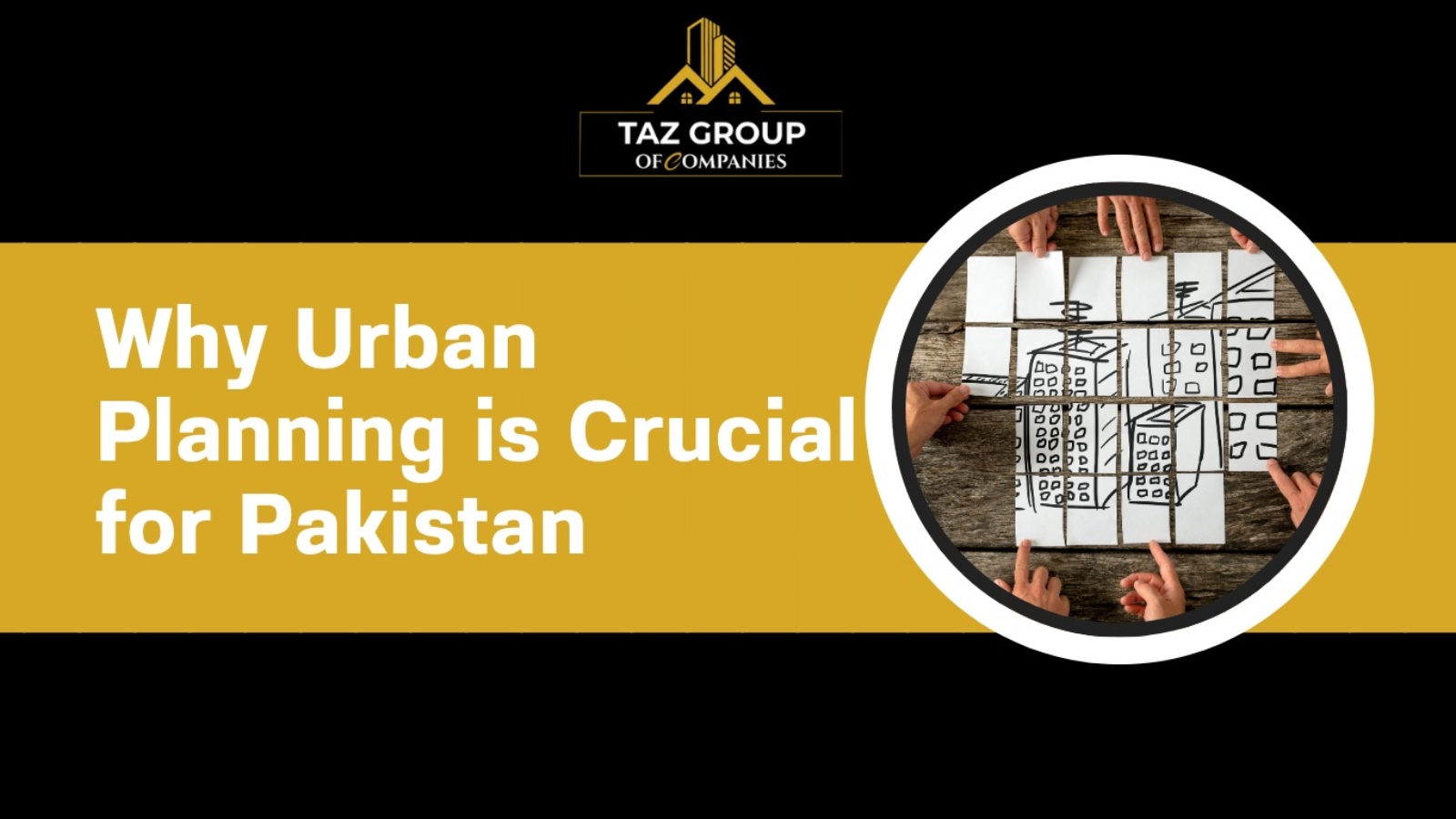Pakistan’s major cities are undergoing rapid urbanization, bringing unprecedented opportunities alongside serious challenges. Housing shortages, overburdened transportation systems, deteriorating infrastructure and economic disparities are the reasons that the pace of growth has outstripped the ability of many cities to manage it effectively. This is where urban planning steps in as a critical tool to ensure that Pakistan’s cities grow in a sustainable, equitable, and resilient manner.
Understanding Urban Planning
Urban planning is the strategic process of designing and organizing land use, infrastructure, and services in urban areas to meet the present and future needs of residents. It integrates considerations across housing, transportation, economic development, public spaces, and environmental sustainability. Well executed urban planning ensures efficient land utilization, supports population growth, and enhances the quality of life for all citizens.
The Current Challenges of Urbanization in Pakistan
The rapid pace of urbanization in Pakistan has led to:
- Affordable and accessible housing is increasingly scarce, forcing many into informal settlements.
- Overcrowded neighborhoods and insufficient sanitation contribute to public health crises.
- Traffic congestion and inefficient public transit systems make commuting difficult and time consuming.
- Unregulated urban sprawl consumes valuable agricultural land and disrupts ecosystems.
- Growing populations strain existing educational infrastructure, limiting access to quality education.
- Flooding, heat waves, and water scarcity threaten many urban centers.
- Bureaucratic inefficiencies, corruption, and fragmented authority often delay or derail urban development projects.
Without a proactive urban planning framework, these challenges will only intensify, compromising the economic and social stability of Pakistan’s cities.
Also read: How Much You’ll Really Save on Property Deals After FED TAX Removal
The Core Pillars of Effective Urban Planning
For urban planning to succeed, it must be built on several core principles:
- Comprehensive Regulation and Control:
Clear and enforceable development regulations that involve stakeholder consultation ensure sustainable growth. - Transparent and Agile Governance:
Strong municipal institutions with clear mandates enable efficient implementation of policies. - Institutional Capacity Building:
Continuous training and support for city planners, engineers, and public officials improve planning capabilities. - Visionary Leadership:
Long term planning must be driven by leaders who prioritize quality of life, economic prosperity, and environmental stewardship. - Integrated Planning:
Coordination across sectors such as transport, housing, healthcare, and education ensures holistic development.
The Economic Imperative
Pakistan’s urban centers contribute approximately 55% of the nation’s GDP. However, unregulated growth undermines this economic potential. Unchecked expansion often results in unregulated housing societies on city outskirts, straining infrastructure and creating service delivery challenges.
Effective urban planning can channel this growth more productively by:
- Encouraging formal real estate development with proper zoning.
- Supporting business hubs with robust infrastructure.
- Attracting both domestic and foreign investment through stable and predictable growth frameworks.
- Reducing reconstruction costs by preventing infrastructure decay.
A well-managed urban economy fosters job creation, entrepreneurship, and innovation while minimizing resource wastage.
The Role of Collaboration
Urban planning requires the collective effort of multiple stakeholders:
- Government Authorities: Establish policies, provide funding, and enforce regulations.
- Private Sector: Contribute to project design, financing, implementation, and long-term maintenance.
- Experts and Professionals: Offer insights in finance, architecture, engineering, health, transportation, and sociology.
- Community Involvement: Engage residents in decision-making processes to reflect their needs and aspirations.
By fostering public private partnerships and community engagement, urban planning can become more responsive, inclusive, and effective.
Building Sustainable Urban Forms
Modern urban planning aims to balance growth with sustainability. Key components include:
- Population Density Management: Designing cities to optimize land use while preventing overcrowding.
- Mixed Use Development: Creating neighborhoods that combine residential, commercial, and recreational spaces.
- Public Spaces: Ensuring green areas, parks, and recreational facilities are accessible to all.
- Efficient Transportation: Expanding mass transit options to reduce reliance on private vehicles.
- Climate Resilience: Incorporating flood control, water conservation, and energy efficient infrastructure.
- Affordable Housing: Guaranteeing that housing remains within reach of all income groups.
Projects such as Bahria Town and DHA represent early steps toward sustainable urban models, but broader application across all urban areas is urgently needed.
Anticipating and Preventing Development Issues
Proactive planning helps cities avoid common pitfalls:
- Forecasting Future Needs: Predicting population growth and resource demand allows for timely infrastructure expansion.
- Reserving Land for Future Use: Zoning for residential, commercial, industrial, and municipal functions ensures balanced development.
- Policy Continuity: Long term plans that transcend political cycles provide stability and sustained progress.
- Cost Efficiency: Preventative planning reduces the financial burden of fixing decayed infrastructure later.
Enhancing Development Project Quality
One of Pakistan’s recurring issues is the short term focus of many development projects, which often neglect long term growth needs. By emphasizing on comprehensive master plans, inclusive public consultations, flexible but enforceable zoning laws, and transparent approval processes, Pakistan can elevate the quality and impact of its urban development projects.
The Way Forward for Pakistan
As Pakistan’s cities continue to expand, urban planning is not a luxury, it is a necessity. Without thoughtful, integrated planning, the pressures of urbanization will strain resources, diminish quality of life, and hinder economic growth.
By embracing best practices in urban planning, Pakistan can build cities that are not only engines of economic development but also vibrant, inclusive, and resilient communities for generations to come. The time to act is now, with coordinated efforts from government, private sector, experts, and communities united by a shared vision for a better urban future.

